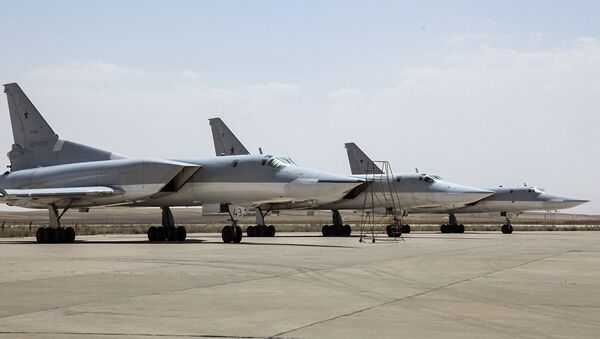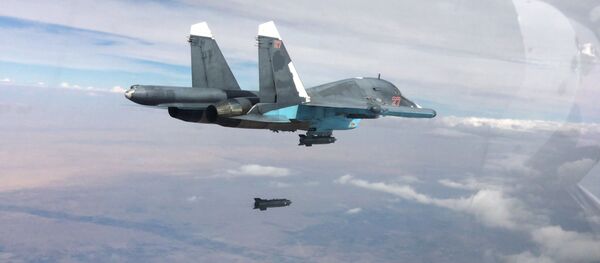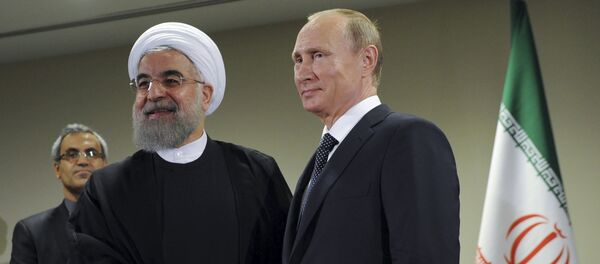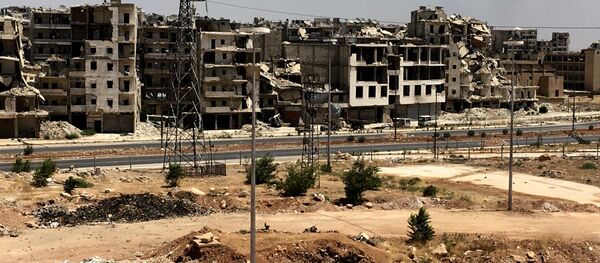In June, Russian Defense Minister Sergei Shoigu paid the first visit to Tehran. Then, the minister and his Syrian and Iranian partners discussed the measures to intensify actions against Daesh and al-Nusra Front terrorists.
On August 8, Russian President Vladimir Putin held talks with his Iranian counterpart Hassan Rouhani. In particular, the two leaders discussed the situation in Syria.
The arrangement to use aviation from an airfield in Iran would bolster Moscow’s positions in the regions and could turn Russia into the major player on the Syrian settlement, an article in The New York Times read.
Russian Tu-22M3 strategic bombers have been involved in the Syrian operation since last fall.
The use of strategic bombers from Hamadan would reduce the flight time and increase payload, military analyst Anton Lavrov said.
"Su-24 bombers is less effective than the Tu-22M3. One Tu-22M3 can carry up to 12 tons of missiles and bombs to 2,000 km. The distance between Hamadan and Aleppo is less than 1,000 km," he told RBK.
Flights of Russian strategic bombers from the Hamadan base would increase the intensity and efficiency of Russian airstrikes, Alexander Khamchikhin, head of the Institute for Political and Military Analysis, pointed out.
The Tu-22 bombers deployed in Iran conducted the first airstrikes in the Syrian province of Aleppo where al-Nusra Front militant hold positions, according to the Defense Ministry.
"Aleppo is much as important as Damascus. This is why all participants of the conflict want to take positions there to decide the battle," Egyptian military analyst Hossam Suweilam told RIA Novosti.
According to the expert, despite the fact that airstrikes have been intensified actions on the ground are needed to defeat the terrorists.
"Militants in Aleppo are holding positions on the ground and airstrikes are not that effective against them," he said.
Egyptian military expert Gamal Mazlum noted that the use of the Hamadan airfield is part of the support by Tehran for Syrian President Bashar Assad, including with troops, military specialists and equipment.
"This airfield is closer to the battlefield. Previously, Russia used strategic bombers from its airfields. The use of the Hamadan airbase is aimed at supporting Assad’s government in Syria," Mazlum suggested.
"Unlike Syria, Iran is an independent state and Tehran is playing its own game. The agreement on the Hamadan base is unlikely to be long-term," Gumer Isayev, head of St. Petersburg-based Center for Contemporary Middle Eastern Studies, was quoted as saying by RBK.
According to the specialist, Russia and Iran are working together over Syria but Tehran is also building ties with Western partners. In situation, Russian bombers could become a bargaining chip.
At the same time, Ruslan Pukhov, director of the Center for Analysis of Strategies and Technologies, underscored that the use of the Hamadan airfield by the Russian Defense Ministry is a new level in ties between Moscow and Tehran.
"Iran is very sensitive about any foreign troops. But the cooperation between Moscow and Tehran is a sign of confidence in bilateral ties. It’s more than just arms deals," he concluded.





